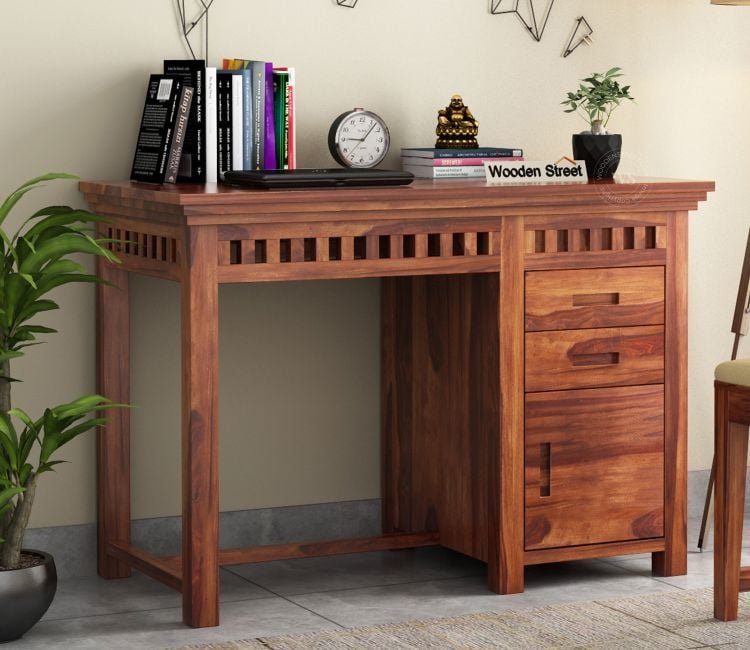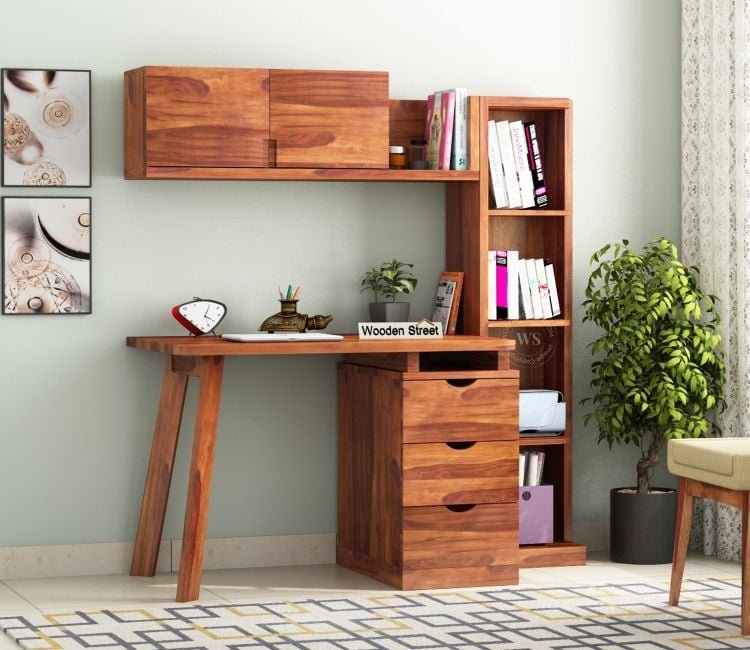In today’s fast-paced world where working from home, remote learning, and personal productivity are central to everyday life, having a dedicated workspace has become more important than ever. Whether you’re a student, a professional, or someone who simply needs a focused corner for writing or reading, choosing the right piece of furniture to support your daily routine is crucial. But the question that often arises is—should you go for a study desk or something else? Understanding the subtle (and not-so-subtle) differences between these two can help you make an informed decision.
Let’s break down the differences, benefits, and how to decide which setup works best for your needs.

What Is a Study Desk?
A study desk is generally a streamlined, purpose-driven piece of furniture designed to accommodate the essentials—books, a laptop, maybe a desk lamp, and some writing space. Unlike bulkier furniture options, a desk is often minimal in design and functionality. Some are equipped with drawers, shelves, or a built-in hutch, while others offer a sleek, modern look for those who like to keep their space clutter-free.
When a Desk Makes More Sense
Choosing a desk over other options depends on a few lifestyle and space-related factors. Here’s when a desk might be the smarter option:
1. You Have Limited Space
If you’re working with a small apartment, a shared room, or a studio flat, a compact desk can slide perfectly into corners or narrow walls. Their minimal footprint makes them ideal for tight spaces without compromising functionality.
2. You Work or Study Digitally
For users who rely primarily on laptops or tablets, a desk with a simple design and minimal storage may be more than enough. These setups can reduce clutter and encourage a tidy work environment.
3. You Prefer a Modern Aesthetic
From Scandinavian minimalism to contemporary matte finishes, desks are available in a wide range of styles that cater to modern sensibilities. They blend well with current home décor trends.
4. You Need Portability
Some lightweight desks can be easily moved or reconfigured in a room. If you anticipate shifting your workspace often, this feature is a major advantage.
Desk Features to Consider
When selecting a desk, think about the following components:
Surface Area: Is it large enough to support your work habits?
Ergonomics: Is the height comfortable for long hours of sitting?
Storage: Do you need drawers or a shelf for organizing items?
Material & Durability: Options like MDF, metal frames, or engineered wood balance cost and strength.
Cable Management: A clutter of cords can be both an eyesore and a hazard. Many modern desks include cable routing systems.
How It Compares to Other Furniture Types
While both desks and other multifunctional furniture pieces can serve similar purposes, their design philosophy differs. Desks are generally more specialized—focused on productivity and posture. On the other hand, general-purpose tables or compact shelving systems may not offer the ergonomic support or surface area required for efficient use over long hours.
Who Should Consider a More Comprehensive Workspace?
While desks serve many people perfectly, others may benefit from setups that offer more features or storage. Here are some indicators:
You work with paper files or books regularly
You need a large monitor setup
You require locked drawers for privacy
You share your workspace with someone else
In such cases, a more elaborate workstation may be worth the investment.

Study Desk vs. Other Tables: Pros and Cons
| Feature | Desk | General Table |
|---|---|---|
| Ergonomics | Tailored for seating comfort | Often lacks proper height |
| Storage | Comes with drawers/shelves | Limited to surface only |
| Aesthetic Fit | Blends with modern decor | Versatile styles available |
| Footprint | Compact | May occupy more space |
| Functionality | Task-oriented | Multipurpose |
How to Set Up a Productive Desk Environment
No matter which type of workspace you choose, the environment you create around it plays a huge role in maintaining focus and comfort.
1. Lighting Matters
Position your desk near a window for natural light, or use task lighting that reduces eye strain.
2. Choose the Right Chair
A comfortable ergonomic chair complements your desk and prevents back issues during extended hours.
3. Keep Essentials Close
Use desk organizers, cable clips, and pen holders to keep your workspace tidy and efficient.
4. Personalize Your Space
Add motivational quotes, plants, or minimalist décor that resonates with your personality to stay inspired.
Common Mistakes to Avoid
Buying based on aesthetics alone: Always consider comfort and functionality first.
Ignoring measurements: Make sure the desk fits well within your room layout.
Underestimating storage needs: Even if you prefer minimalism, clutter builds up. Choose wisely.
Conclusion: Which One is Right for You?
Ultimately, the decision between a desk and other work furniture depends on your space, needs, work habits, and style preferences. A desk is an excellent choice for those who value a clean, organized, and dedicated area for productivity. Its versatility suits both minimalists and those who like structured setups.
Before making a purchase, take a moment to evaluate your daily routine, how much time you spend working or studying, and the type of tools or devices you use. With the right choice, your desk can become not just a piece of furniture, but a catalyst for better focus and efficiency.